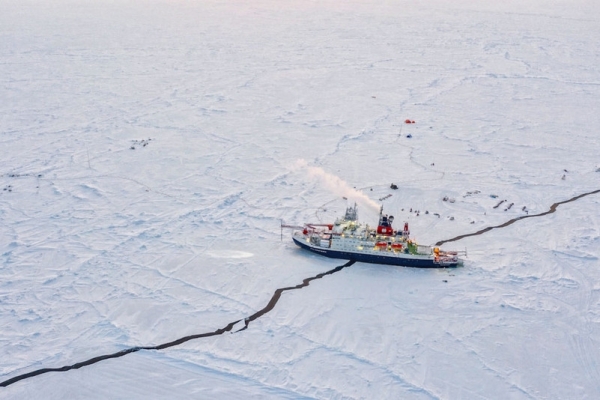Price-cap could slash 60 percent of Russian LNG earnings: report
Despite efforts by the EU to cut off Russian gas supply following the 2022 invasion of Ukraine, Russia remains heavily reliant on Europe and wealthy G7 countries for its overseas gas exports.
In 2023, half of all Russian liquefied natural gas (LNG) exports, worth €8.2bn, were directed to the EU market, as revealed in a report by the not-for-profit Centre for Research on Energy and Clean Air (CREA) published on Thursday (11 April).
-

Russia’s future LNG expansion plans if all goes to plan (Photo: CREA analysis)
Russian LNG represents only a small fraction of the EU’s LNG imports and a mere five percent of the bloc’s total gas consumption.
But EU imports have played a crucial role in sustaining a key part of Russia’s gas industry and has sustained the Kremlin’s ambitious long-term objective to more than double LNG production by 2030 to 94bn cubic metres (bcm), up from the current 40bn bcm.
But Russia remains highly reliant on the EU for this to even partially succeed.
Rerouting supply to Asia would be slow and expensive, likely making Russia’s future Arctic supply less appealing to Asian buyers than LNG from other exporting countries such as Qatar or Oman.
And Russian exporters are still overwhelmingly reliant on carriers from G7+ nations, which include G7 countries, EU member states, Australia, Norway, and Switzerland.
Together, they controlled 93 percent (€15.5bn) of Russia’s global LNG exports in 2023.
Therefore, the report’s authors conclude that extending the price cap that already applies to pipeline gas to LNG would significantly cut Russia’s gas revenue.
"For the past two years, there have been unsuccessful attempts to push politicians to ban Russian LNG imports. The situation has reached a stalemate," said Petras Katinas, author of the report and energy analyst at CREA.
Abruptly halting all Russian LNG supply could cause gas shortages in some EU countries, he added.
Therefore, CREA recommends a price cap of €17 per megawatt-hour, which would allow some of Russia’s facilities to continue selling LNG.
If instituted in 2023, Katinas estimated it would have slashed Russia’s export earnings by 60 percent.
In a policy recommendation, he wrote that "the reliance on G7+ services provides Ukraine’s allies significant leverage in regulating Russian LNG prices and introducing a price cap," which he suggested could be used to "force down the price of its gas exports."
If just the EU had enforced a price cap on the suggested level, Russia’s export revenues would have decreased by 29 percent in 2023 — resulting in a loss for Russia of €5bn.
Although the impact on Russia’s economy as a whole would be limited, it could harm Russia’s long-term LNG goals, especially in the Arctic region where major investments must be made to get production started.
In 2018, for example, Russia established the Yamal LNG facility in the Arctic. Along with smaller installations in Vysotsk and Portovaya, this facility aimed to tap into the vast arctic fossil gas reserves, which are estimated at 85 trillion cubic metres.
These facilities primarily focused on EU markets, a trend that continued into 2023.
Yamal LNG, for example, reported 72 percent of its supply was directed to Europe, while the other two facilities supplied 86 percent to Europe.
When presenting the country’s long term energy strategy in 2021, Russia’s deputy prime minister Alexander Novak had hoped that "the implementation of potential LNG projects will allow Russia to almost triple the volume of LNG production by 2035."
In December, Novak announced on the state-run Rossiya 24 TV channel that the Arctic LNG 2 project, crucial for the ambitious 2030 targets, "has actually started operating"— despite Western sanctions.
But the Arctic project has been plagued by delays after Novatek, Russia’s biggest LNG producer which runs the project, declared a force majeure [non-liability] on shipments in the wake of US-led sanctions, which saw French and US companies leaving the project.
The Arctic export facility could only be saved with Chinese help and is now expected to complete in the coming two years, locking in future revenues for Moscow.
The imposition of a price cap on Russia’s LNG exports would likely further chill future Russian gas plans even more.

